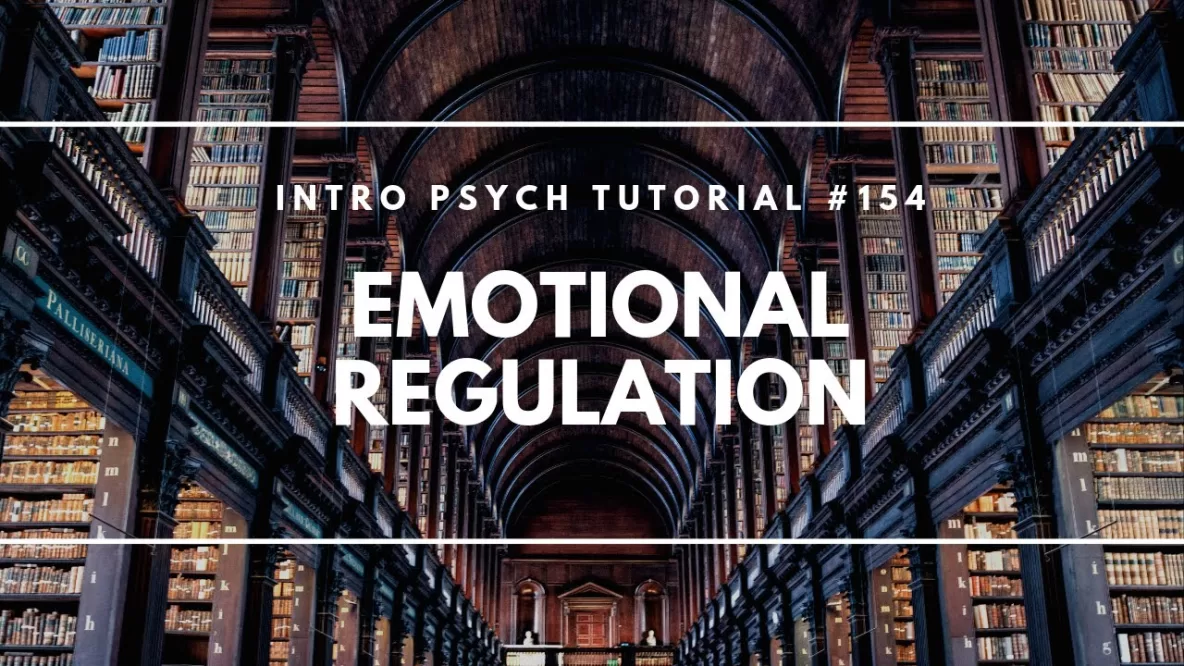In this video I discuss the role of the cortex, particularly the frontal lobes, in emotional experience. Cortical involvement in emotions means that we can use cognitive and behavioral strategies in how we respond to emotional stimuli and how we regulate our own emotions. This involvement may also lead us to consider how emotional regulation plays a role in the expression of our personality traits, particularly traits like conscientiousness or neuroticism, or in our ability to control our own behavior. Lastly, I consider how improved understanding of the brain and emotional regulation may raise challenging questions about the ways that we think about accountability, punishment, and reform.
Don’t forget to subscribe to the channel to see future videos! Have questions or topics you’d like to see covered in a future video? Let me know by commenting or sending me an email!
Check out my psychology guide: Master Introductory Psychology, a low-priced alternative to a traditional textbook: http://amzn.to/2eTqm5s
Video Transcript
Hi, I’m Michael Corayer and this is Psych Exam Review. In the past few videos we’ve mentioned the role of the frontal lobes in emotional processing, we’ve seen emotion pathways in the brain that involve areas of the prefrontal cortex, and we’ve seen that severing connections between the frontal lobes and other brain areas as in a frontal lobotomy can influence emotional responses.
So this idea that the frontal lobes are involved in emotions brings us to how they can be involved in the regulation of emotions because this inclusion of the cortex means that we can also incorporate cognitive and behavioral strategies in how we try to control and regulate our emotional experiences. This is something that we all do. We do actually try to control our emotional responses at different times.
So this brings us to some research conducted by Richard Lazarus and Elizabeth Alfert. What Lazarus and Alfert did was they had participants watch a video of a circumcision, and it was a bit grisly, and some of the participants were told when watching the video to think of it as a joyous religious ritual. And it turns out if participants adopted this interpretation of the video that they were watching they showed reduced emotional responses to it. They also reported experiencing less distress to the video. And so this brings in the idea that how we interpret stimuli can influence the emotional experiences we have, and we can have this possibility of reappraisal. We can reconsider the meanings that different stimuli have and that in turn can influence our emotional responses to them.
So this is part of this process of emotional regulation; figuring out what does something mean and how should I be responding emotionally to it? Now this idea of emotional regulation and the ability to control our emotions might remind you of some things we talked about in the unit on personality. You might start wondering about the relationship between the ability to regulate your emotional experiences and certain personality traits like conscientiousness or neuroticism. And you might start wondering about the ability to control your own behavior, which we might think of as a major aspect of your personality. And maybe this means the functioning of certain areas of your frontal lobes is going to be an important part of how well you can control your own behavior.
So that brings us to consider questions about damage to those areas and accountability. so how do we assign blame to somebody who has damage to these areas of the cortex? Now, we could take a case you might remember of Phineas Gage who had severe damage to his frontal lobes and we might think, “well, he had these fits of rage and maybe we shouldn’t blame him too much. I mean what can you expect from a guy who’s missing large chunks of his brain?”. Maybe we even have some sympathy for Gage.
But what if his outbursts became violent? What if Gage committed a violent crime? How would we assign blame in this case? How would we think about his sense of responsibility for his own behavior? We could also think about less severe forms of damage. So what if, rather than a pole passing through his head and removing a chunk of his frontal lobe, what if he just had a severe concussion that damaged the frontal lobe? What if he had what’s known as traumatic brain injury; TBI? How should we assign blame in that case for his future emotional outbursts or perhaps violent behavior? Or what if he had a genetic defect that was impairing function of certain areas of the cortex?
We might think about famous cases like the case of Charles Whitman who, in 1966, went to the top of a clock tower at the University of Texas in Austin and shot dozens of people. Now, this might be a case where we clearly blame the man and consider him to be responsible for his own actions, but how do we think about the fact that a pecan-sized tumor was found in his brain in autopsy? Does this make him any less responsible?
Or when we think about the fact that the US prison population has about 7 times the average incidence of traumatic brain injury, what does this mean for accountability? How do we punish or how do we hope for reform for these “bad brains”? I don’t have the answers to these questions, but there are things that we have to think about for the future of psychology. Because the more we understand areas of the brain and their involvement in the regulation of emotions and the control of behavior, then we have to start wondering how we hold people accountable for their actions. I hope you found this helpful, if so, please like the video and subscribe to the channel for more. Thanks for watching!

